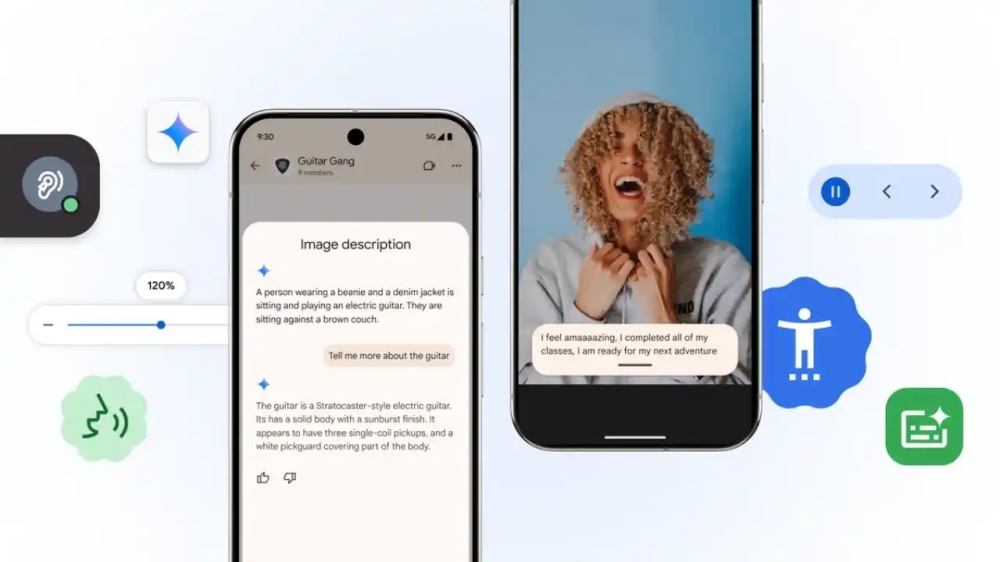One of the most notable updates is the addition of Gemini AI support to Android’s screen reader, TalkBack. Users with visual impairments can now get more detailed information about images, ask questions, and receive answers. For example, if a friend sends you a photo of their new guitar, Gemini can provide details about its brand, color, and other features. Additionally, users can ask questions about the overall content displayed on their phone screen.
Google has also improved Android’s real-time captioning feature, Expressive Captions. The new version better captures speech tone, elongated words, and sound effects—for instance, distinguishing between “amaaazing shot” and “nooooo.” It also adds labels for sounds like whistling or throat clearing. These updates are currently available in English for users in the U.S., U.K., Canada, and Australia on devices running Android 15 or later.
In Chrome, working with scanned PDF documents has become easier. Thanks to new Optical Character Recognition (OCR) technology, users can now select, copy, and search text within scanned PDFs and have the content read aloud using screen readers.
Additionally, Chrome for Android introduces a new Page Zoom feature. Users can now increase text size without disrupting the overall webpage layout, and they can apply zoom preferences either globally across all sites or selectively on certain pages.
These updates reflect Google’s ongoing commitment to innovation in accessibility and its efforts to leverage artificial intelligence to provide more useful tools for users.







